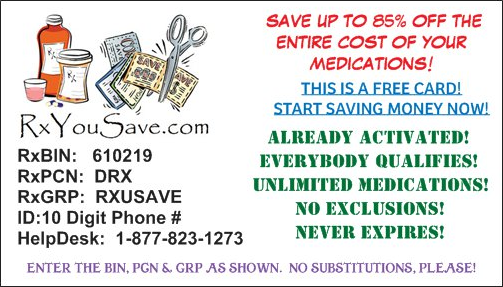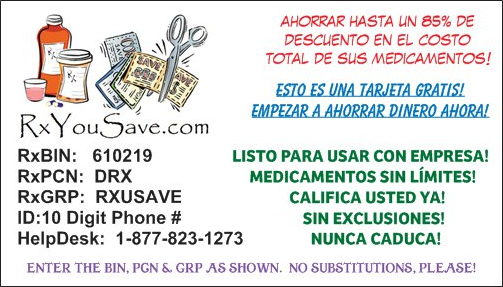Contact Us In The Partner With Us >> About Us Section!
Omontys Medication Guide Information

Read this Medication Guide:
- before you start OMONTYS.
- if you are told by your healthcare provider that there is new information about OMONTYS.
- if you are told by your healthcare provider that you may inject this medication at home, read this Medication Guide each time you receive a new supply of medicine.
This Medication Guide does not take the place of talking to your healthcare provider about your medical condition or your treatment. Talk with your healthcare provider regularly about the use of this medication and ask if there is new information about this medication.
Pronunciation: (O-mon-tis)
|
Availability:
|
What is the most important information I should know about this medication?
Using this medication or other erythropoiesis-stimulating agents (ESAs) can lead to serious side effects including death.
- If you decide to take this medication, your healthcare provider should prescribe the smallest dose of this medication that is needed to reduce your chance of needing red blood cell transfusions.
- You may get serious heart problems such as heart attack, stroke, heart failure, and may die sooner if you are treated with this medication to reach a normal or near-normal hemoglobin level.
- You may get blood clots while receiving this medication. If you are receiving this medication and you are going to have surgery, talk to your healthcare provider about whether or not you need to take a blood thinner to lessen the chance of blood clots during or following surgery. Clots can form in blood vessels (veins), especially in your leg (deep venous thrombosis or DVT). Pieces of a blood clot may travel to the lungs and block the blood circulation in the lungs (pulmonary embolus).
Call your healthcare provider or get medical help right away if you have any of these symptoms of blood clots:
- Chest pain
- Trouble breathing or shortness of breath
- Pain in the legs, with or without swelling
- A cool or pale arm or leg
- Sudden confusion, trouble speaking, or understanding others’ speech
- Sudden numbness or weakness of the face, arm, or leg, especially on one side of your body
- Sudden trouble seeing
- Sudden trouble walking, dizziness, loss of balance or coordination
- Loss of consciousness (fainting)
- Hemodialysis vascular access stops working.
See “What are the possible side effects of OMONTYS?” below.
What is OMONTYS?
OMONTYS is a prescription medicine that works like the human protein
erythropoietin. OMONTYS is given to treat anemia (low red blood cells) in adults
with chronic kidney disease (CKD) who are on dialysis. OMONTYS stimulates your bone marrow to make more red blood cells. Having more red blood cells raises your hemoglobin level. If your hemoglobin level stays too high or if your hemoglobin goes up too quickly, this may lead to serious health problems which may result in death. These serious health problems may happen even if you take this medication and do not have an increase in your hemoglobin level.
OMONTYS should not be used for the treatment of anemia:
- If you have chronic kidney disease (CKD) and are not on dialysis,
- If you are receiving treatment for cancer and your anemia is not caused by CKD,
- In place of emergency treatment for anemia (red blood cell transfusions).
OMONTYS has not been proven to improve the quality of life, fatigue, or well-being. It is not known if this medication is safe and effective in children.
Who should not use OMONTYS?
Do not use OMONTYS if you:
- have high blood pressure that is not controlled (uncontrolled hypertension), have had a serious allergic reaction to this medication.
What should I tell my healthcare provider before using this medication?
Before using this medication tell your healthcare provider if you:
- Have heart disease
- Have or develop cancer
- Have high blood pressure
- Have any history of stroke, blood clot or seizure (convulsion)
- Have blood disorders (such as sickle cell anemia or clotting disorders)
- Have any other medical conditions
- Are pregnant or plan to become pregnant. It is not known if this medication will harm your unborn baby.
- Are breastfeeding or plan to breastfeed. It is not known if this medication passes into your breast milk.
Tell your healthcare provider about all of the medicines you take, including prescription and non-prescription medicines, vitamins, and herbal supplements. Know the medicines you take. Keep a list of your medicines with you and show it to your healthcare provider when you get a new medicine.
How should I use OMONTYS?
- Continue to follow your healthcare provider’s instructions for diet, dialysis, and
- medicines, including medicines for high blood pressure, while using this medication.
- Have your blood pressure checked as instructed by your healthcare provider.
- Your healthcare provider should do blood tests to check your hemoglobin and
- iron levels before and during your treatment with this medication.
- OMONTYS is given one time a month into the vein, through your hemodialysis vascular access (intravenous), or under your skin (subcutaneous).
- OMONTYS should be given by your healthcare provider. In some cases, your healthcare provider may allow you or your caregiver to give the injections at home.
- If you or your caregiver has been trained to give the injections at home, it is important that you:
- Carefully follow the instructions that your healthcare provider gives you.
- Be sure that you read, understand, and follow the “Instructions for Use” that come with this medication.
- Use this medication exactly as your healthcare provider tells you to. Do not change the dose of this medication unless told to do so by your healthcare provider.
- Your healthcare provider will show you or your caregiver how much of this medication to use, how to inject it, how often it should be injected and how to safely dispose of the used containers, needles and syringes.
- If you miss a dose of this medication, call your healthcare provider right away for instructions on what to do.
- If you inject more than the prescribed amount of this medication, call your healthcare provider right away for instructions on what to do.
What are the possible side effects of this medication?
This medication may cause serious side effects, including:
- See “What is the most important information I should know about this medication?”
- High blood pressure. High blood pressure is a common side effect of this medication in people with chronic kidney disease. Your blood pressure may go up or be difficult to control with blood pressure medicine while taking this medication. This can happen even if you have never had high blood pressure before. Your healthcare provider should check your blood pressure often. If your blood pressure does increase, your healthcare provider may prescribe new or more blood pressure medicine.
- Serious allergic reactions. Serious allergic reactions can cause dizziness or fainting because of a drop in blood pressure, trouble breathing, tightness in the chest, swelling around your mouth, tongue or face, or itching all over your body. If you have a serious allergic reaction, stop using this medication and call your healthcare provider or get emergency medical help right away.
- Antibodies to this medication. Your body may make antibodies to this medication. These antibodies can block or lessen your body’s ability to make red blood cells and cause you to have severe anemia. Call your healthcare provider if you have unusual tiredness, lack of energy, dizziness, or fainting. You may need to stop taking this medication.
The most common side effects of this medication include:
- Shortness of breath
- Headache
- Diarrhea
- Muscle spasms
- Joint, back, leg, or arm pain
- Nausea
- Low blood pressure (hypotension)
- Vomiting
- Fever
- Cough
- Increase in blood potassium level
- Problems with your hemodialysis access
- Upper respiratory infection
Tell your healthcare provider if you have any side effect that bothers you or that does not go away. These are not all the possible side effects of this medication. For more information, ask your healthcare provider or pharmacist. Call your doctor for medical advice about side effects. You may report side effects to FDA at 1-800-FDA-1088.
How should I store this medication?
- Keep this medication in the original package.
- Protect this medication from light.
- Store this medication in the refrigerator between 36 °F to 46 °F (2 °C to 8 °C).
- If a refrigerator is not available, OMONTYS vials and pre-filled syringes can be stored at 77 °F or less (25 °C or less) for up to 30 days.
- Throw away multiple use vials of this medication no later than 28 days from the first day that you put a needle into the vial.
- OMONTYS single use vials and pre-filled syringes should be used only one time. Dispose of the single use vial and the pre-filled syringe after use even if there is medicine left in the container.
Keep this medication and all medicines out of the reach of children.
General Information about the safe and effective use of OMONTYS
Medicines are sometimes prescribed for purposes other than those listed in a Medication Guide. Do not use this medication for a condition for which it was not prescribed. Do not give this medication to other people, even if they have the same symptoms that you have. It may harm them. This Medication Guide summarizes the most important information about this medication. If you would like more information about this medication, talk with your healthcare provider. You can ask your healthcare provider or pharmacist for information about this medication that is written for healthcare professionals. For more information go to www.omontys.com or call 1-855-466-6689.
What are the ingredients in OMONTYS?
Active ingredient: peginesatide
Inactive ingredients:
- Single Use Vials and Single Use Pre-filled Syringes: sorbitol, sodium phosphate monobasic (dihydrate), sodium phosphate dibasic, polysorbate 20, and sodium hydroxide in Water for Injection.
- Multiple Use Vials: sorbitol, phenol, L-methionine, glacial acetic acid, and sodium hydroxide in Water for Injection.
Need Help Paying For this Medication? Right Click An Image Below & Download Your Copy Of The RxYouSave Free Prescription Discount Card & Save Up To 85% Off The Entire Cost Of Your Prescription!
 |
 |
Click Here To Go To The Top Of The Page

